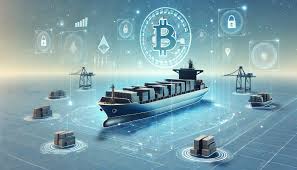IT IS YOUR MONEY
Digital Assets and RWA: The Future of Maritime Trade and Shipping Finance
Shipping is the backbone of global trade, yet its financial infrastructure remains outdated and opaque. Digital assets and real world assets (RWA) are introducing transformative solutions by enabling tokenized vessel ownership, automated cargo financing, and decentralized trade settlements that improve efficiency across maritime logistics.

Tokenizing Ships and Offshore Assets
Maritime companies can tokenize ships, oil rigs, and cargo vessels to raise capital from global investors. This allows shipowners to monetize assets without selling entire fleets, while investors gain exposure to a historically stable but previously exclusive sector.
Real-World Example: TradeLens and Blockchain-Based Bill of Lading
TradeLens, developed by Maersk and IBM, demonstrates how blockchain can digitize shipping documentation like bills of lading. By integrating digital assets and RWA, this system streamlines customs clearance, automates payments, and reduces fraud in international trade finance.
Secured Lending Against Cargo and Vessel Equity
Financing platforms are emerging that allow lenders to issue secured loans backed by tokenized cargo or vessel equity. Smart contracts automate loan disbursement, repayment terms, and default handling, improving trust and reducing counterparty risk.
Enhancing Transparency Across Global Supply Chains
Blockchain-based registries track every stage of a shipment—from departure to delivery—ensuring traceability, authenticity, and regulatory compliance. This level of visibility benefits insurers, financiers, and regulators who rely on accurate data for decision-making.
To learn how digital assets and RWA are reshaping maritime finance and global trade, connect with experts at DigitalAssets.Foundation for tailored insights and a FREE consultation.

More News
© 2026
